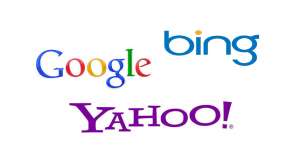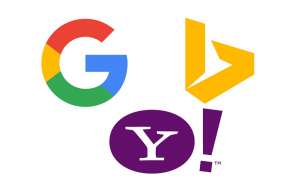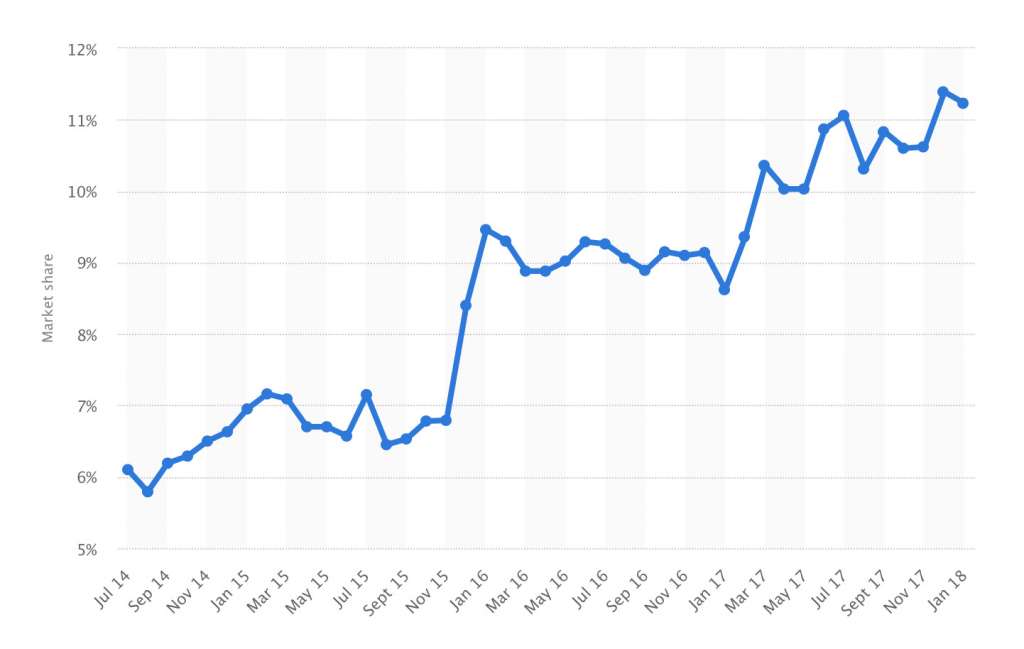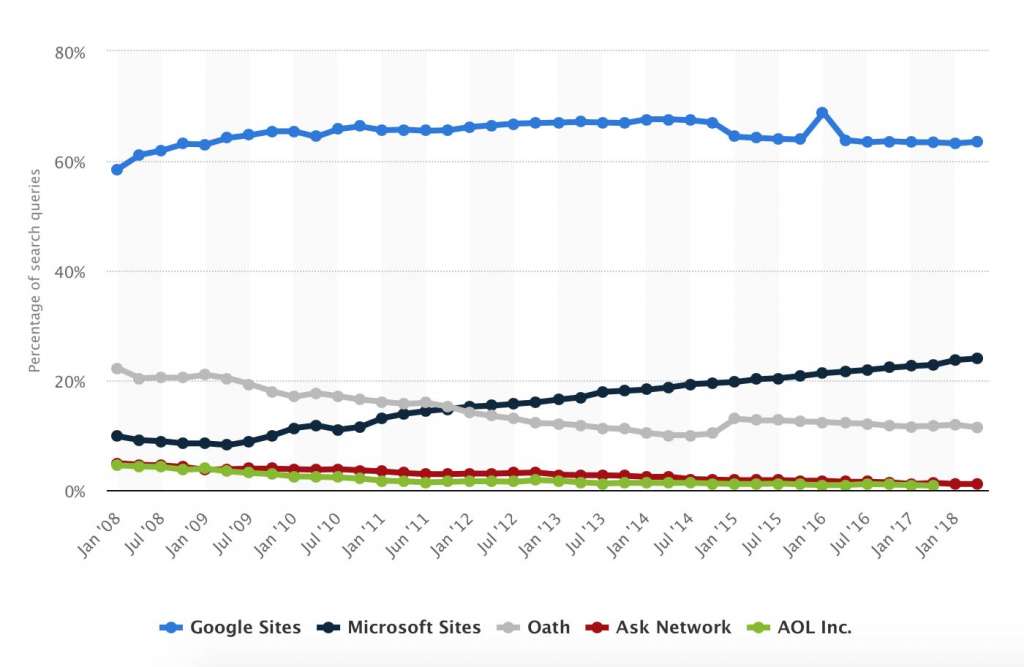 Be it online or offline any successful marketing campaign seeks to put the relevant message in-front of the relevant target market, yet many SEO consultants, marketeers and business owners alike seem to solely focus on Google SEO and ignore Bing and Yahoo.
Be it online or offline any successful marketing campaign seeks to put the relevant message in-front of the relevant target market, yet many SEO consultants, marketeers and business owners alike seem to solely focus on Google SEO and ignore Bing and Yahoo.
In ignoring Bing and Yahoo for SEO and PPC and focussing solely on Google you are overlooking the 15-20% (and growing) of the search market whom use them in the UK, more so in the US but the question is whether there is a difference, and do you need a new strategy to include Bing and Yahoo?
Spread the Focus & Lessen the Risk
It stands to reason that some good search engine optimisation work to your website/s focusing solely on Google is better than non at all but the approach of having ‘all your eggs in one basket’ is not without risk and the question you should ask yourself is that when Google changes the goal posts, as it so often does and you find yourself at the mercy of its latest algorithm changes, do you have a Plan B if you were to see a significant traffic loss?
Whilst Google, Yahoo and Bing are very similar there are subtle differences that will help you leverage risk across your inbound traffic sources so that if you see a drop on one source (e.g. Google), you may see a percentage reduction to the 80-85% of your traffic share from Google but the 15-20% of it from Yahoo and Bing will not subject to the same immediate drop and at least this leaves you with some time and room to manoeuvre whilst you try and react to the drop from Google.
How Is Bing SEO Different than Google SEO?
The quick answer is that Bing and Yahoo (also powered by Bing) are both based upon the same founding principles of quality, relevance and trust that Google is, but that some of the ranking signals and how much priority they have, are subtly different.
Don’t rip up your play sheet just yet! The good news is that if you optimise for any search engine, be it Google or Bing you are most of the way there and you certainly don’t need to start all over again. This post is simply to point out the subtleties so that you can factor them in, but more importantly, that it reinforces the message that you need to widen your focus and not just rely on Google but instead review all of your rankings and analytics and get to know the differences between them across the different search engines and how this plays out when you add content or change something.
Ok then, so what are those Google versus Bing SEO differences?
- Social signals correlate more closely with higher rankings in Bing/Yahoo than they do on Google
- Backlink numbers are more closely linked to higher rankings in Bing/Yahoo than they are on Google
- Brand names and Brand linked URL’s are favoured similarly as on Google but SME retailers with the brand names heavily featured are more favoured in Bing/Yahoo
- Whilst textual content ranking priorities are similar Bing/Yahoo seems more likely to reward pictures, videos, audio than Google
- Technical Factors like page speed, page size, Canonical, meta refreshes and 301/302 redirects are ranked differently with Bing appearing to place less importance on many of these than Google
Conclusion
 While there are many similarities in the ranking factors considered by Bing and Google what is apparent is that there are some subtle but clear differences that justify making small but necessary adjustments to your on and off page SEO so as to ensure that your site ranks well on both and in doing so you will lessen the risk of any negative impact from future updates.
While there are many similarities in the ranking factors considered by Bing and Google what is apparent is that there are some subtle but clear differences that justify making small but necessary adjustments to your on and off page SEO so as to ensure that your site ranks well on both and in doing so you will lessen the risk of any negative impact from future updates.
How this plays out in the long run is quite simply a guess as both search giants could introduce game changing updates to their algorithms but regardless of the future there will likely always be subtle differences between these search giants so it pays dividends to monitor them.
One thing that will dramatically influence search centres on how Google and Bing capture market share as things like voice and local search are more and more influenced by the sale of mobile devices and connected home devices like smart speakers and how the voice assistants from Google, Microsoft and Apple perform.
However at present and for want of a better analogy, Bing is perhaps like Google SEO was around the time it started to roll out Panda and Penguin but before RankBrain in 2015.
Whilst Bing could align itself more closely to Google in certain ranking signals in the near future and place less importance on link quantity in favour of link quality (like Google does) there is particular scope for performance gains in adding more pictures, videos, audio content and increasing both your social and backlink numbers as at present whilst it still gives you a boost on Bing as whilst Google SEO looks more closely into the context and quality of your backlink profile, so long as you are not acquiring bad social and backlinks the worst that would happen would be that you see a gain in Bing but maintain the current Google ranking, with Google giving no value rather than a penalty for some poor links.
Black-hat SEO is bad no matter which search engine you are optimising for but the White-hat (or shades of grey) SEO are ranked differently at present and this is where you should optimise for both and exploit the subtle differences.
The key here is that you don’t need to have two competing strategies for Google and Bing but that you can do the SEO that Google favours now, whilst still doing some of the older search engine optimisation practices that still work on Bing but dont improve or penalise you on Google.
Whilst taking all of these ranking factor suggestions onboard for the different search engines of Google, Yahoo and Bing it is still crucial to remember that whilst you can optimise your site for one or all of the search engines the most important focus of your site optimisation should always be your target market as above all else, whilst Google, Yahoo and Bing will drive the traffic to your site it is your content quality that keeps them there and persuades them (or not) to engage and convert.
It is the human that buys your products or services, not the search engines that gets the human to your site so above all else optimise you sight for visitors!







